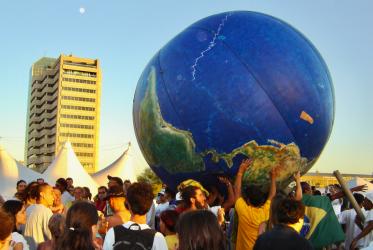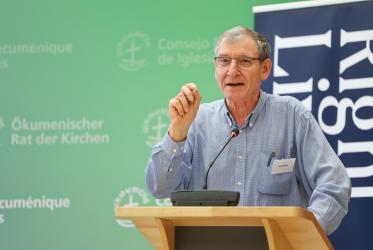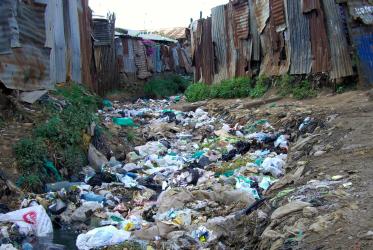Displaying 1 - 20 of 49
09 February 2024
Climate crisis fuels existing water injustice
27 October 2021
On World Toilet Day, sanitation is “an issue of justice”
16 November 2020
Churches should use their voice on climate change
26 February 2020
New WCC “Eco Ambassadors” pledge to protect our ecology
06 January 2020
Eco-School promotes blue communities, green churches
19 November 2019
WCC Eco-School begins in Thailand
07 November 2019
Interfaith Rainforest Initiative expands
12 February 2019
WCC Eco-School encourages youth to become eco-ambassadors
08 November 2018
WCC represented at International Sanitation Convention in India
18 October 2018












